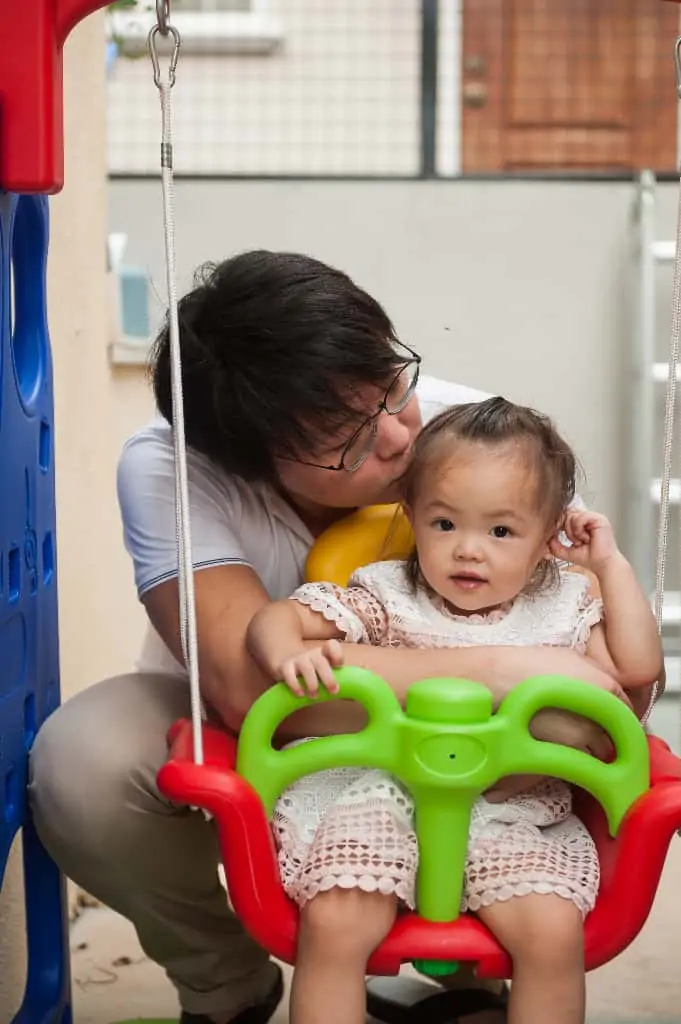I used to have a bamboo coin bank. Every day, after school, I would drop a few dimes in as I was saving up for a pack of basketball cards. Like every kid, I would often shake my coin bank to check if it was almost full. My age was probably twelve or thirteen. Yet, I can still remember the excitement of buying something I want with my own money.
Unfortunately, it did not happen yet that time.
I came home one day and found my bamboo coin bank missing. I searched the entire house and could not find it anywhere. Anger and sadness filled my heart.
Who took my money?
Who could do such a thing?!
I cried because I recalled all the meals I skipped and the extra kilometers I walked only to save more money for my toy. All those sacrifices were for nothing.
But what truly broke my heart is when I found out who took my money. It was not until the weekend when I saw the empty shell of my bamboo coin bank on top of my parent’s office table.
“How much did I save?” I asked.
“About four hundred pesos,” they answered.
It is not illegal for parents to spend their children’s money, but it is not something you would want to practice regularly. It should come as a last resort and should be done with their permission. Spending our children’s money without their approval may lead to various relational issues like mistrust and passive-aggressiveness.
Why do most parents spend their children’s money? Here are some of the reasons:

“It is my money.”
I am not sure up to this day if my parents ever pondered about that bizarre incident. Did they find it odd breaking their child’s coin bank? Or did they think it was completely normal since the content came from their wallets anyway? This seems to be an ordinary phenomenon for most parents.
According to a survey, almost HALF of the parents admit to spending their children’s money — and 51% do not even feel guilty about it.
Some parents, anyway, reason that they are the ones who seeded the piggy bank or savings account in the first place. If the need is great enough, they don’t need permission to take it back.
Dan Kadlec, Times.com
Overall, only 17% said they had never taken money from their kids — either because they cared for their future, or because they knew they would feel guilty if they did.
What do you think? Both sides seem to have a point.
But as I reflect on it today, I cannot imagine myself secretly raiding my children’s coin banks. I would find it weird to demand or coerce my kids to return the money I have already given them. It is their money now. They can do whatever they want with it.
Read: Learn Finance Basics Online: 8 Reasons Dads Need to be Good with Money

“My children might mishandle the money.”
Another reason why parents spend their children’s money is because “they might mishandle it.” It is a valid concern, but how does spending their savings help them get better at money management? Would it not make sense to let them handle their finances even more?
Our children will make dumb money decisions. Count on it. Everyone goes through that phase since it is a part of learning. Yet, oftentimes we are more concerned about the money going to waste, than the lessons our children can learn. — Which is more valuable.
Where my parents spent my savings will always be a mystery to me. Nevertheless, I am sure they used it on something more important than basketball cards. They did a great job at preventing the sum of four hundred pesos from going to waste, but I cannot say the same about educating their son.
What I learned then was to never save money again because, what’s the point? My parents can simply take it away anytime they want. — That is how I have, at least, processed the situation growing up. So, ever since, I always make sure my wallet is empty before going home.
But now I understand where my parents are coming from. It is not cheap to raise a family. Every peso counts. As parents, you have to do whatever it takes to provide for your family. — even if it sometimes goes against your principles.
Mom and dad endured a lot for us to stay in school. It is love and sacrifice I cannot repay in a million years. Yet, it was also an idea I knew nothing about as a kid. If they had only communicated our financial woes with me, I would have had a much different takeaway back then.
Raiding the piggy bank without discussion also sends the signal that money is not something to talk about at home… They (children) would benefit immensely from straight talk about saving, investing and budgets–and financial struggle.
Dan Kadlec, Times.com
Read: Investment vs Insurance: How to know which one is right for me?

“I do not know what to do with my children’s money.”
It was your son’s birthday. He received a bunch of money as gifts. What will you do with it?
I’ll give you a few seconds to think…
Chances are you are already thinking about the upcoming bills or your debts. Many parents spend their children’s money because do not know what to do with it.
We had the same struggle as first-time parents. We did not know whether to:
A. Give money to the kids.
B. Add it to our household budget.
C. Invest it on their behalf.
D. All the above.
In the end, my wife and I decided to go for D, all the above. We split the money and put it in their respective funds:
Give money to the kids
Money has the potential to harm our kids. It is a topic I tackled in another post: Why Money Will Not Solve Your Money Problems. For this reason, we only give five to ten percent of their money-gifts to let them buy something they want.
As of this writing, my son is four and my daughter is two. They are still incapable of managing their finances. — although we are already introducing them to the concept of money. So, in the meantime, we will handle the money for them.
Add it to our household budget
I know what you are thinking, “But Jed, you said we should only spend our children’s money as a last resort; and with their permission?”
Correct, that is why I only credit the money to our children’s fund. It is a category in our budget dedicated to children-related expenditures. In short, they will be the ones who are going to benefit from their contributions.
We allocate ten to fifteen percent of the gift as their “tax” which we can spend on their education, social events, and general needs.
Invest it on their behalf
Whatever amount remains, we put it in an aggressive investment vehicle such as the Index Fund. The intention is to make their money grow until they are ready to take care of their finances. We do not want to rob them of the opportunity of having a headstart fund in the future.
Read: Why It’s Smart to Save with GCash Today
Closing Thoughts
These are trying times. There were instances when I am also tempted to pinch from my children’s money. Why wouldn’t I? Who is going to get mad anyway? My children are not even aware of their assets.
But Lalaine and I have established an imaginary fence that separates what is ours from theirs. It is a healthy boundary where we say to our children, “We respect you, and we will never take advantage of you.”
In times of great need, I may ask them to contribute. I, of course, would be happy and proud when they help out. But I also would not take it against them if they decided otherwise.
Keep in touch
Thank you for reading!
